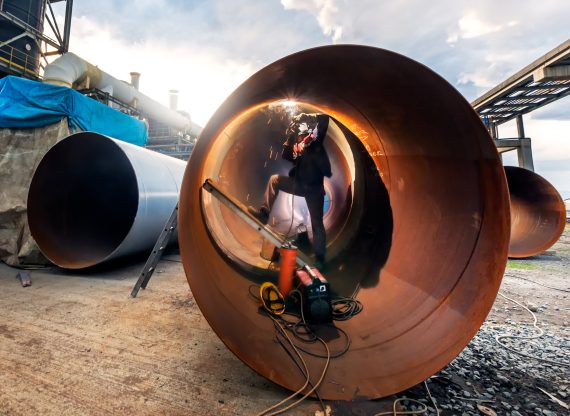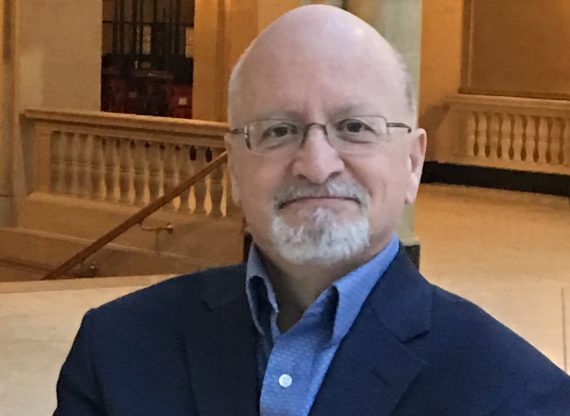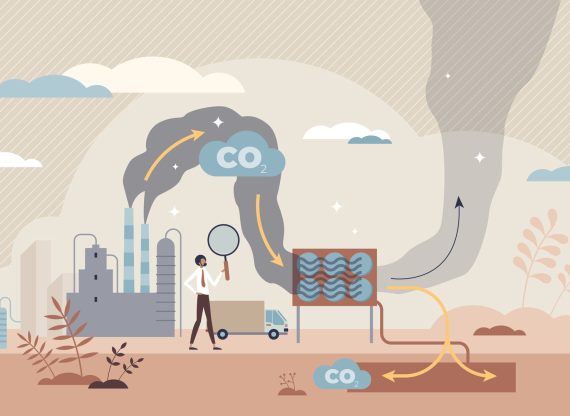
2-minute read
Bringing down barriers to social mobility
Montreal, November 23, 2021 – For several years now, a number of observers have noted a slowdown in economic and social mobility in Canada. While some try to establish a link between economic inequality and social mobility (that is, individuals’ potential to improve their lot), the reality is that bolstering economic freedom is a central piece of the puzzle. In a new publication launched today by the Montreal Economic Institute, authors Vincent Geloso and James Dean identify barriers to economic and social mobility that could easily be eliminated.

3-minute read
Canadians don’t believe that COP26 will be a game changer
Montreal, November 17, 2021 – With COP26 just coming to a close in Glasgow, only 25% of Canadians (and 36% of Quebecers) are of the opinion that this conference helped find solutions to climate change. Health care and the economy clearly remain the top priorities for the Canadian population, and 65% of Canadians are not prepared to pay a single cent more to fight climate change.

2-minute read
The CEO of the MEI reacts to the passing of Germain Belzile
Montreal, November 12, 2021 – Yesterday morning, economist Germain Belzile passed away surrounded by loved ones. Michel Kelly-Gagnon, President and CEO of the Montreal Economic Institute, wished to highlight Mr. Belzile’s remarkable contribution to Quebec public life.

2-minute read
Electric buses: Over $1,500 per tonne of GHG emissions avoided
Montreal, November 4, 2021 – With many policy-makers gathered in Glasgow for COP26, the Quebec government made a big show of announcing over $5 billion in spending for the purchase of electric city buses. According to the Montreal Economic Institute’s preliminary calculations, this would be one of the most expensive and least effective measures for reducing Quebec’s GHG emissions. Miguel Ouellette, Director of Operations and Economist at the MEI, had some thoughts on the matter.

3-minute read
Unlocking Canada’s carbon capture potential
Montreal, October 28, 2021 – With the 2021 United Nations Climate Change Conference (COP26) set to begin in a few short days, governments are expected to double down on GHG emission reduction targets. A recent MEI publication described how carbon capture, utilization, and storage (CCUS) technologies can allow governments to reach their targets without compromising our standard of living. A follow-up publication launched today by the MEI offers tangible solutions to encourage uptake of this new technology by entrepreneurs.

2-minute read
Labour mobility: Quebec must follow Alberta’s lead
Montreal, October 26, 2021 – While many provinces, including Quebec, are facing labour shortages that are compromising their health care systems and several sectors of the economy, Alberta has introduced a bill that should allow the province to access a wider pool of employees. Miguel Ouellette, Director of Operations and Economist at the Montreal Economic Institute, had some thoughts on the matter.

3-minute read
Expropriation des pétrolières et gazières: Québec dort au gaz
MONTRÉAL, le 20 octobre 2021 – Dans le cadre du discours d’ouverture livré hier à l’Assemblée nationale, le gouvernement du Québec a déclaré son intention d’exproprier toutes les entreprises détenant des droits sur le gaz naturel et le pétrole québécois. L’économiste et directeur des opérations de l’Institut économique de Montréal (IEDM), Miguel Ouellette, a souhaité réagir à cette nouvelle économique importante.

3-minute read
GHG emissions: Capturing and using carbon to hit our targets
Montreal, October 14, 2021 – With GHG emission reduction targets getting ever more ambitious, and the pressing need for concrete results, the technological tools at our disposal keep improving. A publication launched today by the MEI looks at CO2 capture, utilization, and storage/sequestration (CCUS) technologies, which are playing a bigger and bigger role and could allow us to reach our targets without compromising our standard of living.

3-minute read
Liberté d’expression : la censure doit cesser
Montréal, le 29 septembre 2021 – Ce matin, de nouvelles données publiées par La Presse sont venues confirmer un constat pour le moins inquiétant : une majorité de professeurs d’université pratiquent l’autocensure. Nos chercheurs à l’Institut économique de Montréal ont souhaité chiffrer les pertes économiques associées à une diminution de la liberté d’expression au Québec.

2-minute read
Quebec can become a leader in distance learning
Montreal, September 29, 2021 – The health measures adopted since the spring of 2020 have forced students to rediscover the pleasures of distance learning. Now that the necessary technological infrastructure is in place, is it feasible for Quebec universities to try to attract a larger international clientele? A publication launched today by the MEI examines how our universities could seize this new opportunity.

